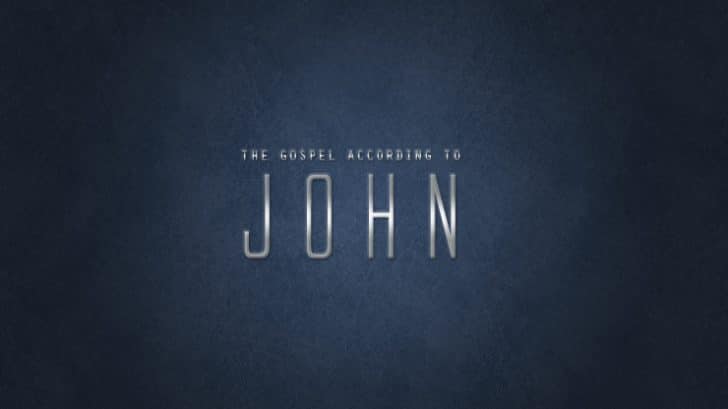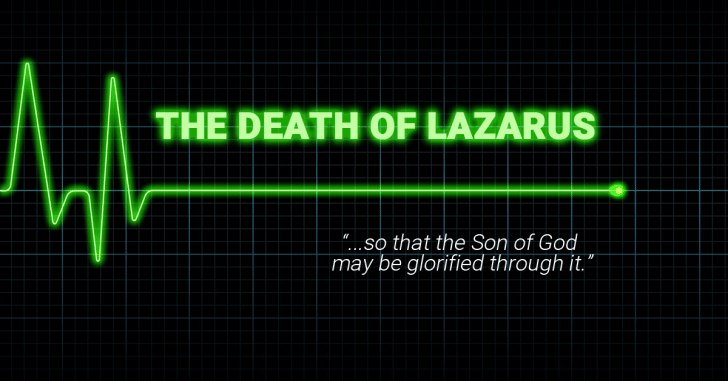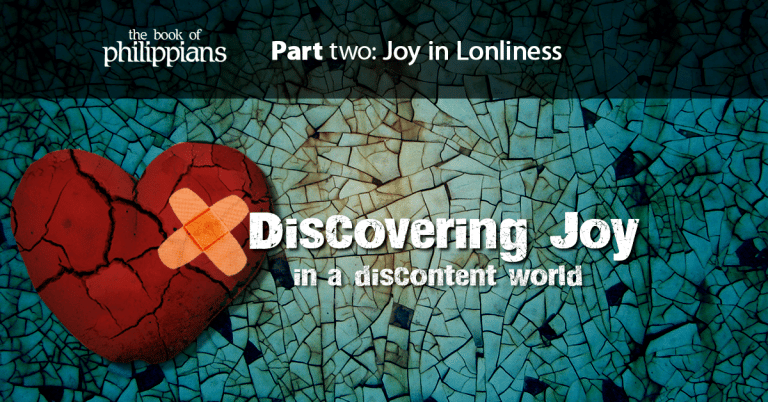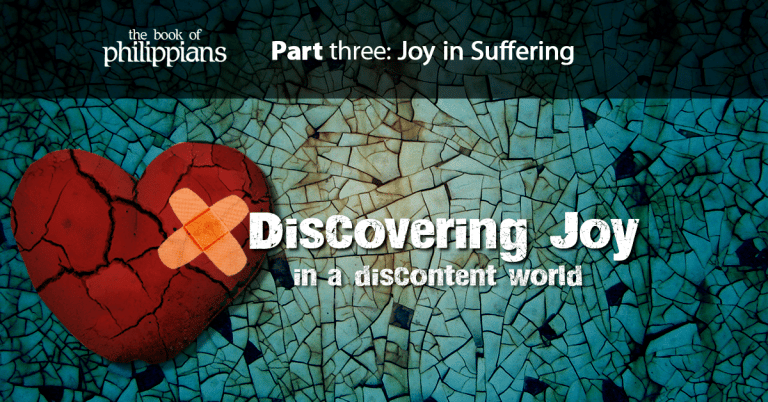John 9:13-34 | Religious Formalism
[efstoggles class=”yourcustomclass”]
[efstoggle active=”” title=”Click here for today’s text (John 9:13-17,24-34)”]
13 They brought to the Pharisees the man who had formerly been blind. 14 Now it was a Sabbath day when Jesus made the mud and opened his eyes. 15 So the Pharisees again asked him how he had received his sight. And he said to them, “He put mud on my eyes, and I washed, and I see.” 16 Some of the Pharisees said, “This man is not from God, for he does not keep the Sabbath.” But others said, “How can a man who is a sinner do such signs?” And there was a division among them. 17 So they said again to the blind man, “What do you say about him, since he has opened your eyes?” He said, “He is a prophet.”
24 So for the second time they called the man who had been blind and said to him, “Give glory to God. We know that this man is a sinner.” 25 He answered, “Whether he is a sinner I do not know. One thing I do know, that though I was blind, now I see.” 26 They said to him, “What did he do to you? How did he open your eyes?” 27 He answered them, “I have told you already, and you would not listen. Why do you want to hear it again? Do you also want to become his disciples?” 28 And they reviled him, saying, “You are his disciple, but we are disciples of Moses. 29 We know that God has spoken to Moses, but as for this man, we do not know where he comes from.” 30 The man answered, “Why, this is an amazing thing! You do not know where he comes from, and yet he opened my eyes. 31 We know that God does not listen to sinners, but if anyone is a worshiper of God and does his will, God listens to him. 32 Never since the world began has it been heard that anyone opened the eyes of a man born blind. 33 If this man were not from God, he could do nothing.” 34 They answered him, “You were born in utter sin, and would you teach us?” And they cast him out. (John 9:13-17,24-34)
[/efstoggle]
[/efstoggles]
Evidence > Belief > Eternal Life
John’s gospel contains only a few select stories about Jesus. According to John, there wouldn’t be enough books to contain everything Jesus did and said. His gospel is a carefully collected set of evidence that testifies to the power and purpose of Jesus. He states that the purpose of his gospel is that you may believe in Jesus and by believing you might have true life which is eternal life (John 20:31).
Our own blindness
Last week, Luke opened us up to chapter nine and the story of a man born blind. In this story, Jesus is displaying his purpose and power by restoring sight to a blind man in order to provide spiritual sight to men and women who are as blind spiritually as this man is physically. As we continue this theme, may we recognize that we are or were as blind spiritually as this man was physically, and may our eyes be opened just as this mans were. For those who have been born again, having their eyes opened by Jesus, my hope is that we will become better prepared to engage our communities with the truth of Jesus in light of what we have discovered about spiritual blindness.
The bible teaches us that sin has robbed us of our spiritual vision. We are like this man in the sense that we too were essentially born blind. We are also like this man in the fact that we need Jesus to restore our vision.
Religious Formalism
They brought to the Pharisees the man who had formerly been blind. (John 9:13)
What’s going on here? People are curious what had happened and how this man got healed. So, they took this man to the authorities (the religious leaders) to clarify what had just happened to this man. In today’s world, a journalist will go and interview authorities. They will ask the right questions to the right people in order to get the right answers. That’s what these people are attempting to do. They bring the man to the Pharisees.
They brought the man to the Pharisees for a conversation. But is this a conversation or an interrogation? The Pharisees are in the drivers seat, but by the end of the day the man born blind turned the tables on them. He begins to tell the church leaders some things they weren’t willing to hear. In Verse 34 They answered him, “You were born in utter sin, and would you teach us?” And they cast him out. We don’t like it when people know something we don’t know.
What we’re dealing with concerning these Pharisees is religious formalism. The attitude and actions of the Pharisees were focused on externals without any real regard to the significance of the things they taught and observed. In Matthew 23:27 Jesus said to the Pharisees that they were beautiful and white on the outside but on the inside were full of dead people bones and filth.
Jesus was always willing to engage the poor, the weak and the broken and hurting with tenderness and mercy. But reserved his harshest rebukes for the religious orthodoxy that was only skin deep. You can really see the shallow depth of the guy’s religious orthodoxy in the way they respond to this who was healed. They were anything but happy that this man had been healed from blindness. Instead, they looked for ways to discredit him and incriminate Jesus.
The Sabbath Problem
The problem was that it was the Sabbath.
Now it was a Sabbath day when Jesus made the mud and opened his eyes. So the Pharisees again asked him how he had received his sight. And he said to them, “He put mud on my eyes, and I washed, and I see.” (John 9:14-15)
Because it was the Sabbath, they wanted to know how Jesus healed him. Did he do something that would put him in breach of the Sabbath? These guys were the guardians of the Sabbath, or so that thought. The fourth commandment simply says to do your work in six days and don’t make your kids, your employees or foreign visitors work on the Sabbath. That’s about all it says. However, the Pharisees made it their life’s ambition to redefine what the Sabbath meant.
You couldn’t drag a chair up to the table because it might put a scratch on the ground and that would be plowing on the Sabbath. You certainly couldn’t make clay by mixing spit with dirt whether you were making pottery or smearing it someone’s eyes.
In chapter five Jesus healed a man who had been lame for thirty-eight years. When the Pharisees saw him carrying his mat they said, “It is the Sabbath, and it is against the law to carry your mat.”
You would think that they would say, “Wow, you have the strength to carry you mat! How does it feel to finally walk after being lame for thirty-eight years? That’s so exciting that you been blessed this way!” But they didn’t because it was the Sabbath and their religious formalism interfered with any ability to rejoice with this man. It was this formalism that prevented them from experiencing on their own any of the transforming power that had healed this man.
Keep the Sabbath our way
Isn’t this a distant example that has little to do with our faith and the church today? Look at verse 16: “This man is not from God, for he does not keep the Sabbath.” What they are really saying is, “He doesn’t keep the sabbath our way.”
Of course, Jesus kept the Sabbath! He kept the Law in its perfection. He was sinless. But it was almost as if Jesus planned to heal these men because it was the Sabbath. “Jesus, you can’t mix up that mud, it’s the Sabbath!” “I know, watch this…!” Then right on cue, here comes the Sabbath police.
Can’t deal with transformation
Religious formalism can’t cope with transformed lives. Religious formalism can’t cope with people being born again. Religious formalism can’t face the dramatic impact Jesus makes when he turns a person’s life upside-down; which is really right-side-up. Religious formalism can’t accept this kind of transformation because you have to recognize the upside-down condition of your own life and the need of Jesus’ power to turn in the right way. It keeps people hiding behind the whitewashed walls of their own religious experience.
Evidence?
There is no indication that these people were really interested in acquiring or examining any evidence that Jesus had healed this man. Their only interest was to deny the miracle and incriminate Jesus.
I was recently in a conversation with a friend and mentioned that I had been healed from my asthma. As soon as I said “healed” she turned away and started talking to someone else. I was totally blown off. When you are telling someone of the transforming work Jesus has performed in your life they probably won’t give you much of a positive response if they are entrenched in religious formalism. They may pacify you with a superficial reaction, but they can’t enter into your joy.
The religious formalists know that they can’t keep all of God’s law, so they create an additional set of rules to condemn you with and justify themselves by. There is nothing more embarrassing to religious formalism than being confronted by a person who has been born again having their blind eyes opened by Jesus.
Interrogated again
This man knew he was born blind and Jesus healed him. These guys are back at him again, trying to rob him of the reality of what Jesus had done for him.
So for the second time they called the man who had been blind and said to him, “Give glory to God. We know that this man is a sinner.” (John 9:24)
These guys simply can’t share in this man’s joy. They are completely incapable of accepting God’s hand in something that doesn’t fit within the box of their formalistic religion. In verse 25 he answered, “Whether he is a sinner I do not know. One thing I do know, that though I was blind, now I see.” (John 9:25) All I can do is tell you what I know. I once was blind, but now I see.
Still unwilling to accept, they keep interrogating him. Verse 26 – They said to him, “What did he do to you? How did he open your eyes?” (John 9:26) The man is finally getting his fill of the questioning and said, “I have told you already, and you would not listen. Why do you want to hear it again? Do you also want to become his disciples?”
This made them really angry. And they reviled him, saying, “You are his disciple, but we are disciples of Moses. We know that God has spoken to Moses, but as for this man, we do not know where he comes from.” (John 9:28-29)
So, the healed man began to testify and said, “Why, this is an amazing thing! You do not know where he comes from, and yet he opened my eyes. We know that God does not listen to sinners, but if anyone is a worshiper of God and does his will, God listens to him. Never since the world began has it been heard that anyone opened the eyes of a man born blind. If this man were not from God, he could do nothing.” (John 9:30-33) That was the last straw for the Pharisees. They answered him, “You were born in utter sin, and would you teach us?” And they cast him out. (John 9:34)
What they are really saying is this: Whoever does not look to us and our knowledge knows nothing. Whoever knows something we don’t know is a fool. If you think you can know God or experience his hand outside of our formalistic religion, you are an idiot.
What about me?
Maybe this actually describes you. You might actually be a religious formalist. Your entire experience has been forms, structures, and religious procedures in an attempt to satisfy God. Do you have total peace? Do you have full assurance of the forgiveness of your sins? Do you rest with absolute confidence that the atonement of Christ was completely sufficient in purchasing eternal life on your behalf? If your are a religious formalist, you can’t have that assurance.
I spoke with a young man on Thursday night and asked him the very same questions. His response was, “Well, I hope that I’ve… I’d like to think that I’ve….” He had no assurance and the wavering amount of confidence he tried to express was not in Christ, but in his own ability to hold up to form and religion. Religious formalists are relying on their capacity to continue maintaining the externals without radical, internal transformation.
These religious forms and structures might be a barrier to you in truly coming to Jesus. Do you have a list things that make you acceptable to God? If religious formalism were enough to get us to God, there would be no need for Jesus’ death on the cross.



